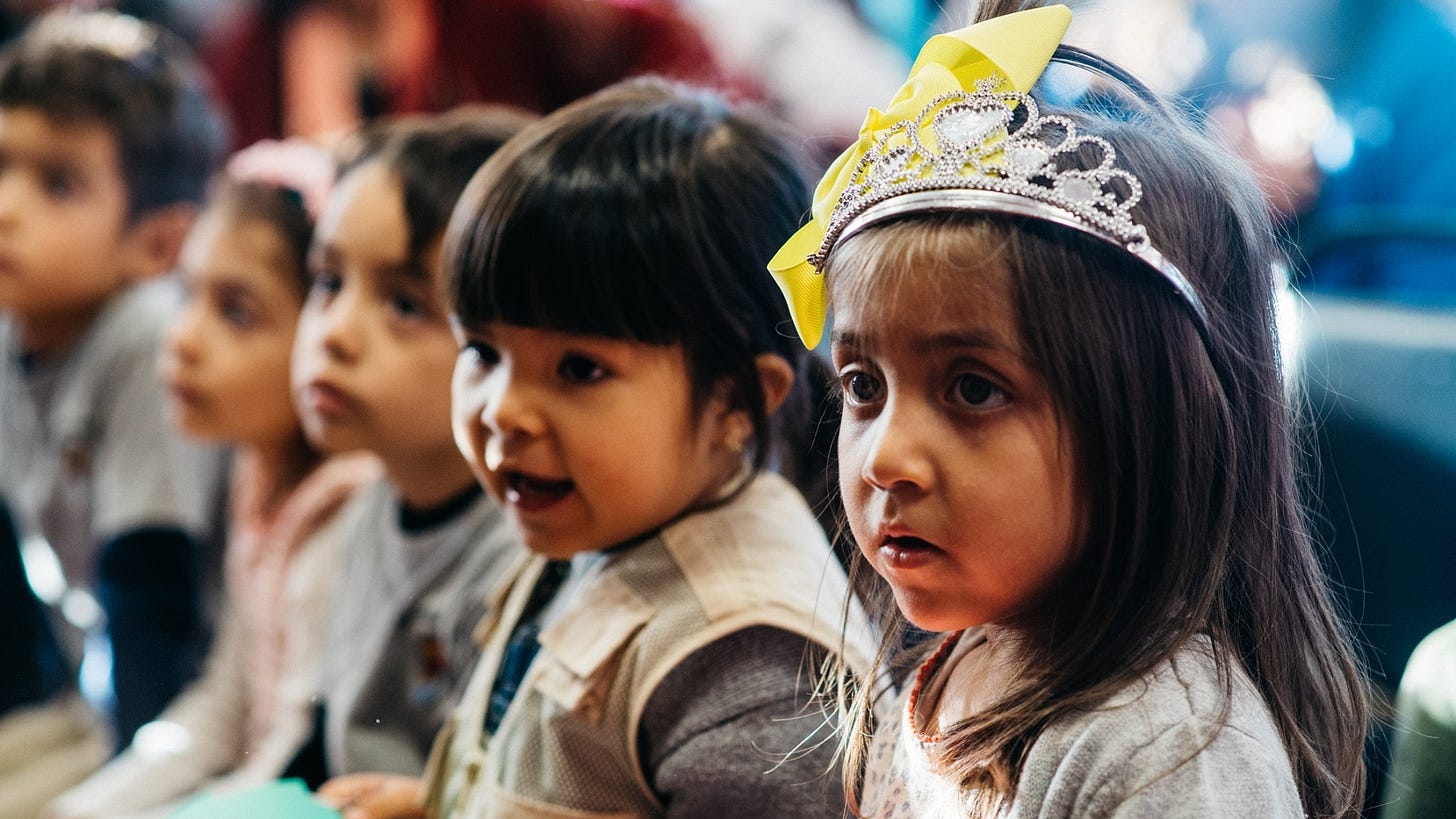Diary: Luis J. Rodriguez, A Writer‘s Journey (Part Two)

Kids at the Tia Chucha’s Centro Cultural Winterlandia festival in December. Photo by Giovanni Solia

[Read Part I of this Diary here]
In writing, as in any artistic endeavor, nothing is guaranteed. You may not get published. You may not become known. You may not even be able to earn enough to pay your bills. But if this is the heart of what you care about, then you have to do it and do it as well and as persistently as you can. It’s about a primary agreement to live out your inner story. Hang on tight to the first agreement between yourself and the universe. This is the source of real authority, the root of “authoring.” This is where you enter the realm of ownership, responsibility, and, ultimately, freedom. There are many obstacles arrayed against the poet, writer, musician, and artist in this society. That’s on society. But if you give up, that’s on you.
A resilient and patient person is what happens when heart, mind, and spirit come together, and these in turn intersect with outside energies and relations. Resiliency is having the capacity to remain essentially intact despite uncertainties, fears, and all manner of struggle. You can avoid dissociating due to trauma and betrayal. Get back into the body, go through the door that opens when you dropped into pain, do not allow anger, blame, and defensiveness to close that door.
What I’m really teaching when I teach writing is not about masterpieces outside of oneself—a great poem, painting, musical piece, or whatever. Yes, these are beneficial. But people who create these works are also in a creative process. They are works of art. Ultimately the real masterpiece is you. Prisons, for instance, where I’ve taught for many years, are compressed and intense microcosms of the world; they can also be powerful schools on how to live, how to become more human, however much we still need actual keys to open up actual prisons, and to find cures and changes outside of industrial incarceration.

Support our work:
Subscribe to receive a little book review every few days in your in-box
$5.99 for one month, $45 for a year
Or receive our free updates
Building a connected world through reading

In the Los Angeles where I live the Santa Ana winds scatter dry leaves, and droughts make tinder out of the formerly green brush. Wildfires are metaphor and reality for our internal and external terrains. The city is music but also muscles, a rain dance often with no rain, neon glare and smog-tinged skyline, held together in a spiderweb of freeways. It’s a place where even jacarandas and palm trees are transplants. This is where the city’s buildings are bricked and nailed together with survival stories, war stories, and love stories—the kind of harrowing accounts Los Angeles unfurls at three a.m., when ghosts meander along the upturned pavement or rumble by on vintage cars, and all-night diners convert into summits for the played out, heartsick, and suicidal.
There’s a migrant soul in this rooted city: Skid Row next to the Diamond District, waves of foam against barnacled piers, cafes and boutiques next to botanicas. Ravines and gulleys turn into barrios, rustic homes with gardens dot bleak cityscapes, and suburbs burst with world-class graffiti. Fragmented yet cohesive, Los Angeles demands reflection on ourselves and the unstable ground we call home, where people die for lack of a roof or food or compassion.
These roads, bridges, and alleys contain concertos. Breezes over the ocean’s darkest depths are replete with harmonies, and a howling moon and red sunset serve as backdrops for every aching interlude. Los Angeles is where every step rhymes, where languages flit off tongues like bows across strings, skateboarders and aerosol spray cans clatter in a daily percussion, and even angels intone “We can do better,” while haggling at garage sales.
There’s an ending to our story. Like all endings, it’s also a beginning. Still we have a charge: To make the well-being of every child, adult, elder, family, and community the cornerstone of a new city, and the central quest of a new story. Envision what kind of world is arising, already pulsing through its people, including the poor, the deprived, already beating in their hearts, in their songs, in their best dreams for America and the world. It’s time for us to come home.
Luis J. Rodriguez is the author of the memoir Always Runningand fifteen other books of memoir, poetry, fiction, nonfiction, and children’s books. He was the Poet Laureate of Los Angeles from 2014 to 2016 and is the co-founder of Tia Chucho’s Centro Cultural, bookstore, and publishing house in Los Angeles. This Diary is adapted from his new book, From Our Land to Our Land, newly published by Seven Stories Press.
Book Post is a by-subscription book review service, bringing short and well-made book reviews by distinguished and engaging writers direct to your in-box. Subscribe to our book reviews and support our writers and our effort to grow a common reading culture across a fractured media landscape. Coming soon: Alvaro Enrigue on Samantha Schweblin; Recently: Stephen Kinzer on the Pentagon and Climate Change.
Mac’s Backs Books on Coventry, in Cleveland, Ohio, is Book Post’s current partner bookstore. We support independent bookselling by linking to independent bookstores and bringing you news of local book life as it happens in their aisles. We’ll send a free three month subscription to any reader who spends more than $100 there during our partnership. Send your receipt to info@bookpostusa.com.


